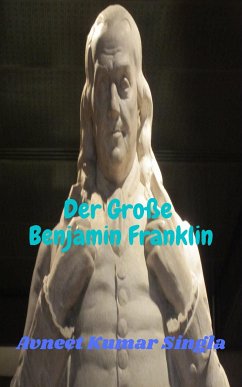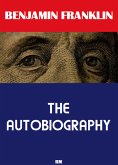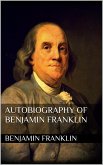This is a great non-fiction biography book describing the life of legendary Benjamin Franklin. Franklin was a leading writer, printer, political philosopher, politician, Freemason, postmaster, scientist, inventor, Humourist, civic activist, statesman, and diplomat. As a scientist he was an important figure in the American Enlightenment and the history of physics for his discoveries and theories regarding electricity. He founded many civic organizations, including the Library Company, Philadelphia's first fire department, and the University of Pennsylvania.
Franklin received the title "the first American" for his early and tireless campaigns for colonial unity, first as an author and speaker in London for several colonies. Franklin was fundamental in defining the American ethos as a combination of the practical values of thrift, hard work, education, community spirit, self-governing institutions, and opposition to political and religious authoritarianism with the scientific and tolerant values of the Enlightenment. “For Walter Isaacson, Franklin is the most accomplished American of his time and the most influential when it comes to inventing the kind of society that would become America."
Franklin became a successful newspaper editor and printer in Philadelphia, the leading city in the colonies, and published the Pennsylvania Gazette at the age of 23. After 1767 he was associated with the Pennsylvania Chronicle, a newspaper known for its revolutionary sentiments and criticism of the policies of the British parliament and the crown.
He was the first president of the Academy and College of Philadelphia, which opened in 1751 and later became the University of Pennsylvania. Franklin became a national hero in America as an agent for several colonies when he tried in London to have the Parliament of Great Britain repeal the unpopular Stamp Act. An accomplished diplomat, he was widely admired among the French as American Minister in Paris and was an important figure in the development of positive French–American relations. His efforts proved decisive for the American Revolution in securing shipments of important ammunition from France.
He was promoted to Deputy Postmaster for the British colonies on August 15, 1753, after serving for many years as postmaster of Philadelphia, and this enabled him to establish the first national communications network. He initially owned and traded slaves, but by the end of the 1750s he began to argue against slavery, became an abolitionist, and promoted education and the integration of blacks into American society.
More than two centuries after his death, his life and legacy of scientific and political achievements, as well as his status as one of America's most influential Founding Fathers, have honoured Franklin with the fifty-cent piece, the $ 100 bill, warships, and the names of many cities, counties, educational institutions, and businesses, as well as numerous cultural references.
Note :- We are offering this book at much discount as a promotional activity.
Franklin received the title "the first American" for his early and tireless campaigns for colonial unity, first as an author and speaker in London for several colonies. Franklin was fundamental in defining the American ethos as a combination of the practical values of thrift, hard work, education, community spirit, self-governing institutions, and opposition to political and religious authoritarianism with the scientific and tolerant values of the Enlightenment. “For Walter Isaacson, Franklin is the most accomplished American of his time and the most influential when it comes to inventing the kind of society that would become America."
Franklin became a successful newspaper editor and printer in Philadelphia, the leading city in the colonies, and published the Pennsylvania Gazette at the age of 23. After 1767 he was associated with the Pennsylvania Chronicle, a newspaper known for its revolutionary sentiments and criticism of the policies of the British parliament and the crown.
He was the first president of the Academy and College of Philadelphia, which opened in 1751 and later became the University of Pennsylvania. Franklin became a national hero in America as an agent for several colonies when he tried in London to have the Parliament of Great Britain repeal the unpopular Stamp Act. An accomplished diplomat, he was widely admired among the French as American Minister in Paris and was an important figure in the development of positive French–American relations. His efforts proved decisive for the American Revolution in securing shipments of important ammunition from France.
He was promoted to Deputy Postmaster for the British colonies on August 15, 1753, after serving for many years as postmaster of Philadelphia, and this enabled him to establish the first national communications network. He initially owned and traded slaves, but by the end of the 1750s he began to argue against slavery, became an abolitionist, and promoted education and the integration of blacks into American society.
More than two centuries after his death, his life and legacy of scientific and political achievements, as well as his status as one of America's most influential Founding Fathers, have honoured Franklin with the fifty-cent piece, the $ 100 bill, warships, and the names of many cities, counties, educational institutions, and businesses, as well as numerous cultural references.
Note :- We are offering this book at much discount as a promotional activity.









